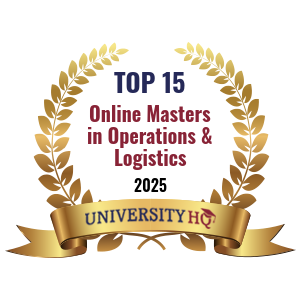Understanding Operations Management
In operations management, you're dealing with essential business strategies that enhance efficiency and streamline processes. Key areas include managing supply chains, improving quality control, and setting goals. These aspects are pivotal for an operations manager's role.
Fundamentals of Operations Management
The core responsibility is to maximize efficiency within a company's processes. This includes overseeing the conversion of materials into products. Operations management also involves developing strategies to improve quality control and resource utilization.
A focus on continuous improvement and lean methodologies helps reduce waste and optimize productivity. It's essential to understand the interdependence of various business processes to effectively coordinate activities.
Role of an Operations Manager
An operations manager has a crucial role in strategic planning, decision-making, and leadership within a company. You need to ensure that the organization's processes align with its broader goals. Responsibilities often include project management and overseeing logistics and distribution efforts.
Your leadership develops strategies to balance costs with revenue. This ensures that products or services meet quality standards and are delivered on time. The ability to rapidly adapt to changing demands and market conditions is vital.
Education and Skill Development
To excel as an operations manager, education and skill development are vital. Knowledge of academic pathways, crucial skills, and certifications will strengthen your career prospects. Universities and online platforms offer diverse courses focused on operations management, ensuring flexible learning paths for those interested in this dynamic field. From foundational degrees in business administration to specialized courses in supply chain and quality management, learners can find comprehensive programs that suit different career aspirations.
Undergraduate Degree in Operations Management
The undergraduate degree in operations management equips students with the skills necessary to oversee and improve the productivity of businesses. It focuses on areas such as supply chain management, quality control, and project management. Programs often combine theoretical knowledge with practical applications to ensure graduates are ready to tackle real-world challenges.
Typical Courses:
- Introduction to Operations Management
- Supply Chain Logistics
- Quality Management
- Project Management
- Quantitative Analysis
Many universities offer specialized tracks or minors in related fields such as Supply Chain or Logistics Management. These tracks often provide more targeted education for industries like manufacturing or retail. Some institutions have also made our rankings for the most affordable college programs in operations management.
Graduate Degree in Operations Management
Pursuing a graduate degree in operations management offers an opportunity to develop critical skills in managing and optimizing business processes. These programs focus on areas such as supply chain management, logistics, and decision making.
- Master's Programs:
Many institutions offer online master’s degrees that prepare graduates for leadership roles across various sectors, including manufacturing and healthcare. Tuition: Approximately $26,000. - Accreditation:
Some programs are AACSB accredited, ensuring a high standard of education. This accreditation is held by less than 5% of business schools worldwide, highlighting exclusive quality. - Skills Developed:
Graduates often gain expertise in quantitative analysis through courses in financial modeling and econometrics. These skills are essential for analyzing complex data effectively and making informed business decisions. - Career Paths:
Graduates with advanced degrees in operations management can pursue careers in various industries, such as logistics, finance, and government. They often play key roles in improving efficiency and productivity within organizations.
Career Opportunities and Growth
As an operations management professional, there are numerous career pathways and opportunities for advancement in various industries. Recognizing potential career paths and understanding advanced roles can significantly boost your professional growth.
Exploring Career Paths
Operations management offers diverse career paths. You might begin your career as an operations manager, responsible for overseeing the production and distribution of goods. This role often involves managing daily operations to ensure efficiency.
Consider roles like a business operations manager, which focuses on strategic planning to improve operations. Alternatively, a purchasing manager handles the procurement of essential materials, playing a critical part in a company's supply chain operations.
Advanced Roles and Specializations
With professional experience, you can explore advanced roles such as a materials manager or specialize in areas like supply chain operations. A materials manager supervises inventory and materials management, ensuring resources are available when needed.
Advanced roles often require additional expertise or education, potentially including a master’s degree. You'll lead complex projects and drive strategic initiatives within the company. Specializing in supply chain operations can also open doors to specialized consulting roles.
Consider broadening your skills through targeted recruitment initiatives or pursuing specialized certifications, which can position you for leadership opportunities and enhance your reputation in the field.
Strategic Operations Management
In strategic operations management, your ability to make informed decisions is key. Effective strategies enhance competitiveness and streamline backend functions, such as production and inventory management, influencing your business structure and success.
Development of Strategic Plans
Developing strategic plans involves aligning your operations with your business strategy. This requires an understanding of how different aspects of your business interconnect. Inventory management, production schedules, and resources allotment must be optimized to meet organizational goals.
Consider production as a focal point where you can decide to adopt lean manufacturing techniques, minimizing waste and maximizing efficiency. A well-structured plan considers external market trends and internal capabilities. By making informed strategic decisions, you ensure that resources are directed toward activities that offer the most value.
Operations Management and Business Structure
Your business structure greatly influences operations management, dictating how resources flow and how decisions are made. In a well-aligned structure, you leverage business acumen to enhance efficiency and decision-making processes. Organizational skills are crucial in maintaining a balance between different departments.
The structure impacts backend business functions, including finance, inventory management, and human resources. Effective planning ensures these functions support strategic objectives. With the right structure, you can clearly define responsibility, streamline communications, and optimize resource allocation, enhancing your ability to execute strategic plans effectively.
Inventory and Quality Assurance
Effective inventory management and quality assurance are critical components of smooth business operations. These elements ensure accuracy, efficiency, and high-quality outputs, aligning closely with both consumer expectations and business goals.
Inventory Management Techniques
Effective inventory management can significantly enhance your operations by balancing supply and demand. Techniques such as just-in-time (JIT) and economic order quantity (EOQ) are widely used. JIT minimizes inventory costs by ordering goods only as they are needed for production, reducing storage requirements. EOQ helps you determine the optimal order quantity to minimize total inventory costs, focusing on balancing ordering and holding costs.
Forecasting plays a key role in planning, allowing you to predict demand and maintain optimal inventory levels. Integrating an ERP system can streamline processes by offering real-time data and analytics, helping you make informed decisions. With these tools, you can ensure an efficient supply chain, reduce waste, and improve customer satisfaction.
Principles of Quality Management
Quality management ensures that your products meet customer expectations through rigorous standards like Six Sigma. This methodology focuses on reducing variability and defects in any process, resulting in improved quality and performance. By implementing quality control measures, you can monitor and maintain these standards throughout the production process.
Quality assurance differs slightly from quality control as it is a proactive process focused on preventing defects through systematic planning and development. Utilizing techniques such as inspections and audits ensures compliance with predefined quality standards. By understanding these principles, you can enhance product reliability, increase customer trust, and maintain competitive advantage.
Operations Management in Practice
Operations management is vital to improving business efficiency through strategy alignment, technological tools, and real-world applications. You will discover how to apply operations strategies effectively, use technology to enhance operations, and learn from successful case studies.
Applying Operations Strategy
In operations management, applying an effective strategy is crucial for enhancing productivity and optimizing processes. This involves aligning your operations strategy with your overall business goals and market demands. Key components include forecasting, scheduling, and inventory management. Accurate forecasting helps in predicting demand, while efficient scheduling ensures resources are allocated effectively.
Consider focusing on process improvement techniques such as Lean or Six Sigma, which can minimize waste and enhance process efficiency. Implementing these strategies can lead to better resource utilization and cost reduction, enabling your business to remain competitive.
Technological Tools in Operations
Technological tools are essential for boosting efficiency and streamlining operations. ERP (Enterprise Resource Planning) systems are vital for integrating various business functions such as finance, HR, and supply chain management into a single platform. These systems enable real-time data access, helping you make informed decisions promptly.
The use of AI-driven analytics enhances process improvement by identifying inefficiencies and suggesting optimal solutions. Tools like automation software reduce manual tasks, thus increasing productivity and reducing errors. Technology also improves inventory management through automated tracking systems that ensure stock levels are optimal.
Case Studies of Successful Operations Management
By studying successful case studies, you can learn valuable lessons in efficient operations management. One notable example might include a multinational corporation that streamlines its operations through innovative scheduling and real-time data analysis. These measures led to a significant increase in productivity and cost savings.
Another case might focus on a company that adopted an ERP system to improve workflow integration, resulting in a reduction in inventory costs and improved delivery times. These examples highlight the importance of a solid operations strategy and the role of technology in achieving business objectives.
Future Directions in Operations Management
Operations management is evolving with technological advancements and the effects of globalization. These shifts promise to reshape how operations are conducted, focusing on leaner and more efficient processes. Embracing these changes can enhance supply chain strategies and product design.
Emerging Trends and Technologies
Technological advancements are revolutionizing operations management. Automation, artificial intelligence, and machine learning are being integrated into forecasting and logistical processes to increase efficiency. For instance, AI algorithms optimize supply chain management by predicting demand more accurately, reducing waste, and ensuring timely deliveries.
Lean supply chains are also gaining importance. By minimizing waste and improving resource utilization, businesses can cut costs and improve operational efficiency. This trend prioritizes sustainability and efficiency, encouraging companies to adopt technology for monitoring and optimizing processes. Such tools enhance the overall agility of operations.
The Impact of Globalization
Globalization affects operations management by expanding market access and increasing competition. As businesses access global supply chains, they must balance efficiency with the complexities of international logistics. Companies are now required to navigate challenges in customs, currency fluctuations, and varying regulations across different countries.
The need for strategic planning becomes crucial in this context, as businesses must develop robust strategies to maintain competitiveness in a global market. This involves building agile operations that can react swiftly to changing economic and political landscapes. Effective globalization strategies include forming partnerships and investing in technology to streamline cross-border operations, making it easier for companies to adapt to global demands.
State-By-State Operations Management Rankings
Select a State to Search Colleges & Universities

- Select a State
-
- Alabama
- Alaska
- Arizona
- Arkansas
- California
- Colorado
- Connecticut
- Delaware
- District of Columbia
- Florida
- Georgia
- Hawaii
- Idaho
- Illinois
- Indiana
- Iowa
- Kansas
- Kentucky
- Louisiana
- Maine
- Maryland
- Massachusetts
- Michigan
- Minnesota
- Mississippi
- Missouri
- Montana
- Nebraska
- Nevada
- New Hampshire
- New Jersey
- New Mexico
- New York
- North Carolina
- North Dakota
- Ohio
- Oklahoma
- Oregon
- Pennsylvania
- Rhode Island
- South Carolina
- South Dakota
- Tennessee
- Texas
- Utah
- Vermont
- Virginia
- Washington
- West Virginia
- Wisconsin
- Wyoming


